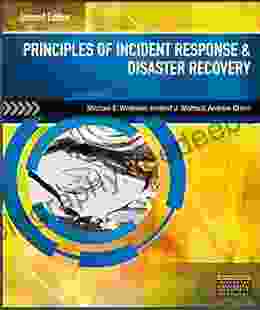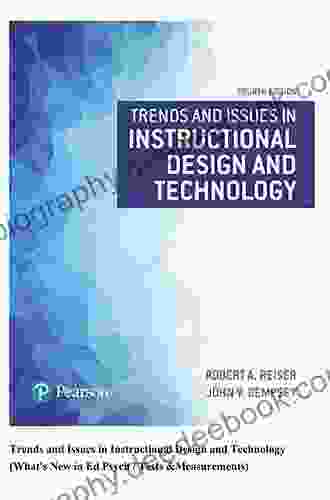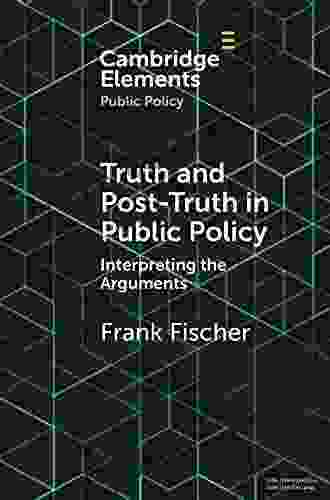Truth and Post-Truth in Public Policy: Elements in Public Policy

The concepts of truth and post-truth have become increasingly prominent in public discourse in recent years. This is particularly the case in the context of public policy, where the accuracy and reliability of information are essential for effective decision-making. In this article, we will explore the concepts of truth and post-truth in the context of public policy, examining the elements that contribute to these phenomena and their implications for policymakers.
5 out of 5
| Language | : | English |
| File size | : | 1463 KB |
| Text-to-Speech | : | Enabled |
| Screen Reader | : | Supported |
| Enhanced typesetting | : | Enabled |
| Word Wise | : | Enabled |
| Print length | : | 96 pages |
Truth in Public Policy
Truth is a fundamental element of public policy. It is the foundation for sound decision-making and the basis for public trust. Truth in public policy requires that the information used to inform decisions is accurate, reliable, and unbiased. This includes data, research, and analysis, as well as the statements and claims made by policymakers.
There are a number of factors that can contribute to the erosion of truth in public policy. These include:
- The rise of misinformation and disinformation: The internet has made it easier than ever for false and misleading information to spread quickly and widely. This can make it difficult for policymakers to access accurate information and can lead to decisions being made on the basis of incorrect or incomplete information.
- The decline of trust in institutions: Trust in institutions such as the government, the media, and academia has declined in recent years. This can make it difficult for policymakers to communicate the truth to the public and can lead to a lack of public confidence in policy decisions.
- The politicization of truth: Truth has become increasingly politicized in recent years. This means that different political parties and groups often have different interpretations of the truth, and that the truth can be used as a weapon to attack opponents.
Post-Truth in Public Policy
Post-truth is a term that has been used to describe a situation in which objective facts are less influential in shaping public opinion than appeals to emotion and personal belief. In the context of public policy, post-truth can lead to decisions being made on the basis of emotion, ideology, or personal preference, rather than on the basis of evidence and reason.
There are a number of factors that can contribute to the rise of post-truth in public policy. These include:
- The rise of social media: Social media has made it easier for people to share their opinions and beliefs, regardless of whether they are based on facts. This can create a sense of consensus around false or misleading information, and can make it difficult for people to find accurate information.
- The decline of critical thinking: Critical thinking is the ability to evaluate information and make judgments based on evidence and reason. The decline of critical thinking can make it easier for people to believe false or misleading information, and can make them more susceptible to manipulation by political actors.
- The rise of populism: Populism is a political ideology that appeals to the common people and often rejects the established institutions and elites. Populist leaders often use post-truth tactics to appeal to their supporters and to undermine their opponents.
Implications for Policymakers
The rise of truth and post-truth in public policy has a number of implications for policymakers. These include:
- The need for greater transparency and accountability: Policymakers need to be more transparent about the information they are using to make decisions and be held accountable for the accuracy and reliability of that information.
- The need for more public education: Policymakers need to do more to educate the public about the importance of truth and critical thinking. This includes teaching people how to evaluate information and identify false or misleading information.
- The need for more collaboration: Policymakers need to work together with other stakeholders, such as the media and civil society organizations, to combat the spread of misinformation and disinformation.
Truth and post-truth are complex and challenging issues that have a significant impact on public policy. Policymakers need to be aware of the factors that contribute to these phenomena and be prepared to take steps to address them. By promoting truth and critical thinking, policymakers can help to create a more informed and engaged public and improve the quality of public policy.
5 out of 5
| Language | : | English |
| File size | : | 1463 KB |
| Text-to-Speech | : | Enabled |
| Screen Reader | : | Supported |
| Enhanced typesetting | : | Enabled |
| Word Wise | : | Enabled |
| Print length | : | 96 pages |
Do you want to contribute by writing guest posts on this blog?
Please contact us and send us a resume of previous articles that you have written.
 Novel
Novel Chapter
Chapter Story
Story Genre
Genre Reader
Reader Paperback
Paperback E-book
E-book Newspaper
Newspaper Sentence
Sentence Shelf
Shelf Preface
Preface Synopsis
Synopsis Annotation
Annotation Footnote
Footnote Classics
Classics Library card
Library card Narrative
Narrative Biography
Biography Autobiography
Autobiography Memoir
Memoir Reference
Reference Encyclopedia
Encyclopedia Dictionary
Dictionary Thesaurus
Thesaurus Narrator
Narrator Character
Character Librarian
Librarian Archives
Archives Periodicals
Periodicals Scholarly
Scholarly Academic
Academic Reading Room
Reading Room Special Collections
Special Collections Study Group
Study Group Dissertation
Dissertation Storytelling
Storytelling Awards
Awards Reading List
Reading List Book Club
Book Club Textbooks
Textbooks Brent Tyman
Brent Tyman Katharine Guerrier
Katharine Guerrier Millie Jacobs
Millie Jacobs Stacy Thomas
Stacy Thomas Michael E Whitman
Michael E Whitman Susan Wiggs
Susan Wiggs Ost Neer
Ost Neer Wayne Barrett
Wayne Barrett Richard Arum
Richard Arum Jeff Pearce
Jeff Pearce Karl Wiggins
Karl Wiggins Sebastian Raschka
Sebastian Raschka C M Benamati
C M Benamati Brad Olsen
Brad Olsen Taylor Swift
Taylor Swift Boris Gomelsky
Boris Gomelsky Scottie Nell Hughes
Scottie Nell Hughes Gabrielle Danoux
Gabrielle Danoux Jesse Willoughby
Jesse Willoughby Wendy Corsi Staub
Wendy Corsi Staub
Light bulbAdvertise smarter! Our strategic ad space ensures maximum exposure. Reserve your spot today!

 Mark TwainThe Long Way Home: The Adventures of Henry Whiskers, the Legendary Traveling...
Mark TwainThe Long Way Home: The Adventures of Henry Whiskers, the Legendary Traveling... Mario BenedettiFollow ·14.3k
Mario BenedettiFollow ·14.3k Quentin PowellFollow ·9k
Quentin PowellFollow ·9k Anthony WellsFollow ·18.1k
Anthony WellsFollow ·18.1k Darnell MitchellFollow ·11.1k
Darnell MitchellFollow ·11.1k Joe SimmonsFollow ·6.5k
Joe SimmonsFollow ·6.5k Ben HayesFollow ·5.7k
Ben HayesFollow ·5.7k Mario SimmonsFollow ·17.4k
Mario SimmonsFollow ·17.4k Stuart BlairFollow ·16.7k
Stuart BlairFollow ·16.7k

 Franklin Bell
Franklin BellSecond Edition Pdf No Audio: A Comprehensive Guide to the...
The Second Edition...

 Jackson Blair
Jackson BlairTrends and Issues in Instructional Design and Technology
Instructional...

 Mario Vargas Llosa
Mario Vargas LlosaEnchanting Enigma Variations and Triumphant Pomp and...
The Enigma Variations: A...

 Dwight Blair
Dwight BlairTime Between Us: A Novel That Explores the Power of...
Prepare to be swept away by...
5 out of 5
| Language | : | English |
| File size | : | 1463 KB |
| Text-to-Speech | : | Enabled |
| Screen Reader | : | Supported |
| Enhanced typesetting | : | Enabled |
| Word Wise | : | Enabled |
| Print length | : | 96 pages |














